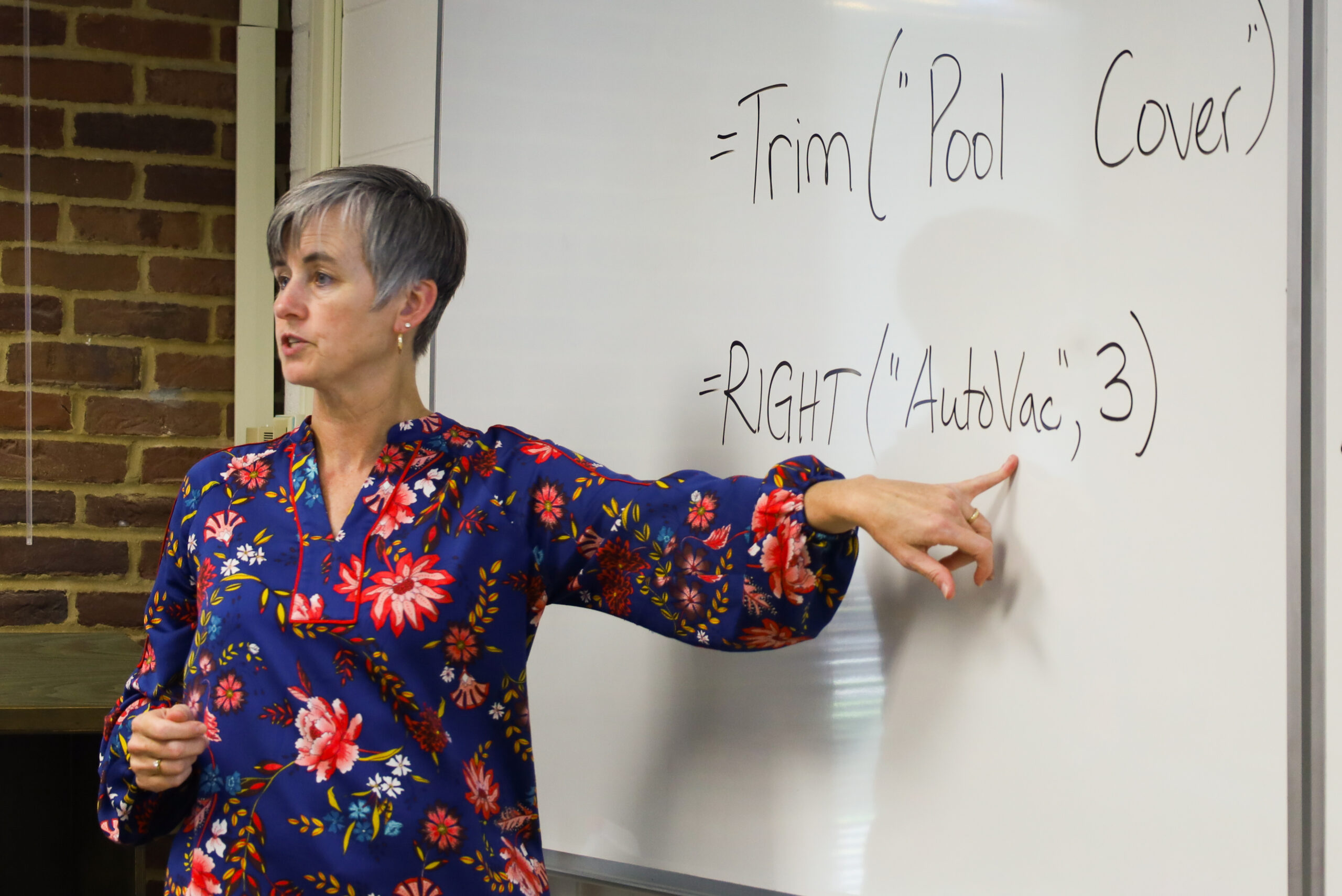This fall, the business department tested out an accelerated schedule for some of its courses, shifting them from a traditional 14-week calendar to a seven-week intensive.
For the first half of the semester, International Economics, a three-credit class taught by Jerrell Ross Richer, met for 50 minutes on Monday, Wednesday and Friday and for 75 minutes on Tuesday and Thursday. The class of 17 students met for five hours a week but finished at the midterm break on Oct. 12.Michelle Horning, chair of the business department, explained that the reasoning is twofold: to help students have more flexibility in their schedules and reduce the stress of managing four or five classes at once. “We have lots of student-athletes and commuter students in our programs,” Horning said, “and those students are balancing many commitments at the same time. A seven-week course schedule allows students to take fewer courses at a time and still be a full-time student.”
With this schedule, students who are studying full-time might take only two courses at a time. The seven-week arrangement aligns with the new adult degree-completion program in business management — all of the courses in this program are seven weeks and online. While most of the seven-week courses in the traditional business program are in-person, the new format offers students a choice of in-person or online courses.
Gonzalo Barahona Hernandez, a senior biology major, took International Economics and enjoyed the format. “The topics were consistent and easy to follow,” Barahona Hernandez said. “Something we talked about the previous day we could connect back and forth really easily.” Taking it in the first half worked well for him: “Since you’re front-loading at the beginning of the semester, when classes all start picking up after fall break … you have this extra five hours in your week.”
“I really enjoyed having two Moodle pages to operate instead of four,” Ross Richer said. “When I’m reading things in the news, I can just be focused on international economics.”
Peyton Foreman, a sophomore sports management major, took Organization of Business during the first half of the semester. “I had the class every day, so I had to be extremely focused on what was going on — it felt like high school.”
Ella McLeod, a sophomore accounting major, said she learns better in a semester-long course. “With the shorter courses, we’re getting information thrown at us in such a short amount of time,” McLeod said. “I know I am able to grasp what is being told, but I personally like being able to fully explore topics and practice what is being taught.”
This year, most of the classes in the business department that are on the accelerated schedule are intended for freshmen, but “there are some seven-week, upper-level courses that serve both undergraduate and MBA students,” Horning said.
“In some cases, we are offering the same course to students in different programs and need to choose the calendar schedule that works best for the majority of students,” Horning said.
The business department is looking to get feedback on the format. “As we roll this out,” Horning said, “we don’t have many students on a fully seven-week course schedule, but we want to get feedback quickly so we can make good decisions for next year.”
Working with students on a daily basis can have benefits in retaining information from class to class. “Today,” Ross Richer said, “I introduced the model of supply and demand. Tomorrow at 11 o’clock, I’m going to continue with what I was doing today. If it was the regular schedule, it would be two days from now. When I go in tomorrow, it’ll be a lot fresher in my mind and the student’s mind as well.”
Ross Richer’s new class this semester, Economics of Sustainability, runs in two three-hour double periods. He’s excited about the possibilities of incorporating speakers, field trips and activities that couldn’t happen in a regular class period, including a food waste audit from the dining hall taking place this week.
“We have to open up the bags with all those compostable plates, recyclable forks and a bunch of food waste,” he said. “And so we have this two-and-a-half hour block that we can devote to that. When we get done, we’ll just go back to the classroom. We won’t be in a hurry, and won’t need to cut it short.”
Also, it is nice to be able to focus on one class at a time.
“Based on the limited experience I have from my one class that I did and just getting started here in week two, session two,” Ross Richer said, “I’m enjoying having this continuity. I’m enjoying the fact that I put away International Economics now; it’s done, grades are in.”
With reporting by Annika Alderfer Fisher and Phillip Witmer-Rich


